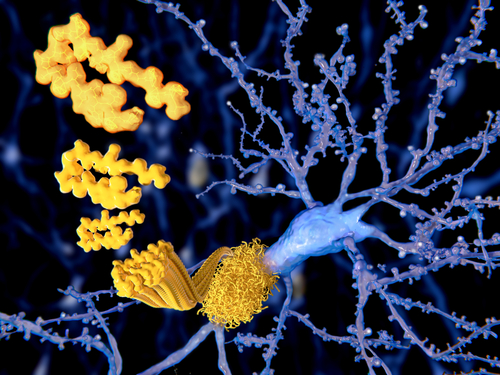ProMIS, Selexis to Develop Antibody Targeting Toxic Amyloid Beta

ProMIS Neurosciences will advance the development of PMN310, its manmade antibody designed to target the toxic forms of amyloid beta that underlie Alzheimer’s disease.
The first step in the manufacturing of PMN310 will be carried out by Selexis with its proprietary CHO-K1 cell line, part of the company’s SUREtechnology platform.
The platform uses Selexis’ optimized, high-performance mammalian (Chinese hamster ovary) cell line which allows for faster and more efficient scale-up production of the antibody of choice. Vehicles, called vectors, are then used to introduce into these cells the genes carrying the information for the generation of the antibody of choice, a process called transfection. The vehicle also carries a selection marker to select and maintain in culture only the cells in which the introduction of the information was successful.
Selexis’ platform is equipped with advanced transfection protocols, genome sequencing, and off-the-shelf culture media, which allow for faster but more stable antibody production.
PMN310 is an antibody that binds to the neurotoxic amyloid beta aggregates, preventing additional amyloid beta from clustering together. This means the therapy may potentially neutralize toxic aggregates and prevent neurodegeneration.
“ProMIS’ lead antibody program PMN310 offers potential ‘best in class’ antibody therapy for Alzheimer’s disease,” Eugene Williams, executive chairman of ProMIS, said in a press release. “With initiation of producer cell line development, we are re-focusing our efforts on advancing PMN310 into clinical development with the support of a distinguished Boston-based group of investors.”
The brain has three forms of amyloid beta. The toxic form, called oligomer, is the one that kills nerve cells and promotes neurodegeneration. Previous preclinical data showed that PMN310 targeted the toxic form of amyloid beta, leaving non-harmful forms untouched.
In the study, researchers also compared the effectiveness of PMN310 against that of Eli Lilly’s solanezumab, Johnson & Johnson and Pfizer’s bapineuzumab (which has since been discontinued), and Biogen’s aducanumab.
Results showed that in contrast with PMN310, solanezumab mainly bound to amyloid beta monomers, which are harmless. Bapineuzumab bound to all forms of amyloid beta — monomers, oligomers, and fibrils. Aducanumab displayed a preference for binding to the toxic oligomer form of amyloid beta and fibrils.
“Using our proprietary discovery platform we were able to create the PMN310 antibody so that it selectively targets only the toxic oligomers of amyloid-beta (A) and avoids undesirable binding to non-toxic forms of amyloid,” Williams said.
“We believe this high degree of selectivity of PMN310 may offer significant differentiation in terms of efficacy and safety compared to less selective antibody products,” he added.






